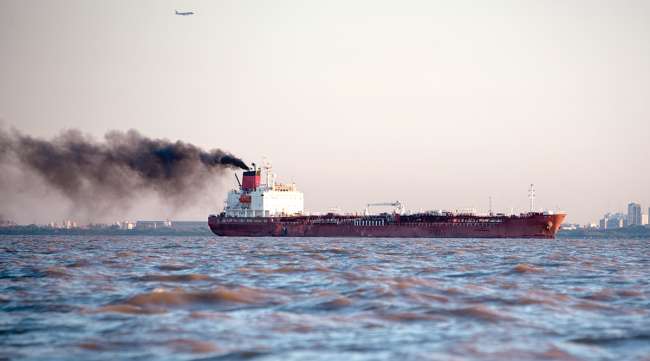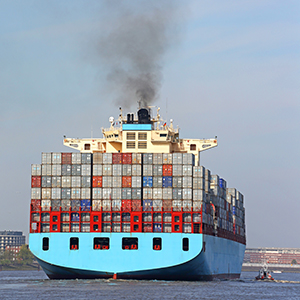Senior Reporter
Energy Experts Fear Price of Diesel to Spike Because of New Shipping Fuel Mandate

[Stay on top of transportation news: Get TTNews in your inbox.]
Trucking executives fear sharp hikes in the cost of diesel, and perhaps a shortage, as the industry competes for fuel with ocean carriers, which have a mandate to sharply reduce pollution in fewer than 90 days.
The International Maritime Organization said starting Jan. 1, ships will have to use new blends of fuel oil produced to meet an 0.5% limit on sulfur oxide (SOx) from 3.5%.
Energy experts told Transport Topics that the concerns are significant.

Industry experts estimated shipping and cruise lines will need at least 3-4 million barrels a day of ultra-low sulfur diesel to comply with the new regulations as those vessels and shift from high-polluting marine diesel. (Getty Images)
“There is this enormous fuel switch that has to happen, within the next few months,” said IHS Markit transportation economist Paul Bingham. “The impact is coming quick, and we’re running out of time.”
The date is not likely to be changed or delayed, according to IMO, because the date is set in the MARPOL treaty and can only be changed by amendment, which must be circulated for a minimum of six months prior to adoption. MARPOL (short for maritime pollution) is the main international convention aimed at the prevention of pollution from ships.
“The truckers and the railroads are both going to get hit by this in ways they may not be understanding,” Bingham said. “The diesel fuel side is going to be exposed, and those prices are going to be hit by this surge in marine distillate coming up very shortly. There’s only so much tweaking the refiners can do to the supply and demand.”
The concern over possible increases in the price of diesel and its availability is coming at a time when the U.S. average retail price of diesel dropped 0.7 cents to $2.976 per gallon, the Department of Energy reported Sept. 3. The price of diesel has fallen for eight consecutive weeks since July 15, when trucking’s primary fuel cost $3.051 per gallon. Diesel costs 27.6 cents less than it did a year ago when it was $3.252, DOE said.
Industry experts have estimated shipping and cruise lines will need at least 3-4 million barrels a day of ultra-low sulfur diesel to comply with the new regulations as those vessels shift away from high-polluting marine diesel — so-called “bunker” fuel. The emissions are known to cause respiratory symptoms and lung disease, and they lead to acid rain that can harm crops, forests and aquatic species, according to IMO.
S&P Global Platts Analytics estimates the global impact of the IMO’s mandate could exceed $1 trillion over five years.
With diesel prices falling, Glenn Kedzie, energy and environmental counsel at the American Trucking Associations, is concerned that many people in the industry and government are not taking the issue seriously enough, and that carriers could be in for a rude awakening later this year.

Kedzie
“It’s like a hurricane that is moving at 1 mile per hour,” Kedzie said. “No one is talking about it.”
Carl Bentzel, a Washington transportation consultant recently nominated by President Donald Trump to a five-year term on the Federal Maritime Commission, said the fuel switch is reminiscent of what happened between 2006 and 2010 after a mandate that all petroleum-based diesel in North America and Europe be ultra-low sulfur: diesel prices steadily rose.
Bentzel said trucking will compete with shipping for those 3-4 million barrels a day.
“Now you’re taking in another industry, a very big industry — and in certain areas of the country, even bigger in terms of fuel consumption than the trucking industry — and you’re adding it to the list of those needing this sort of fuel. It’s going to have implications,” he said.
Refueling stations along the coastal areas, especially those near major ports, could see the highest increase in demand for diesel.
Kedzie said the greater impact is likely to happen to smaller companies that often buy diesel on the retail market and cannot buy fuel in large volumes.
“These ships are pretty big ships, and when they pull up to get fuel, the fuel companies are going to pay attention to them. So the smaller companies in the transportation chain may have difficulty getting access to diesel fuel,” Bentzel added.




